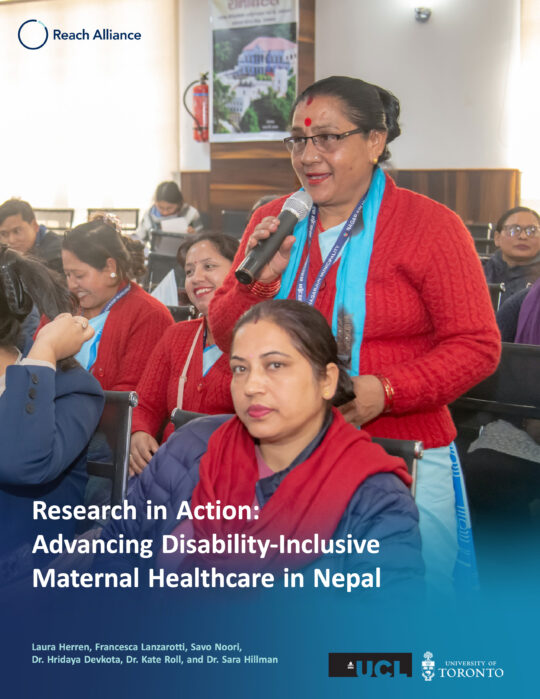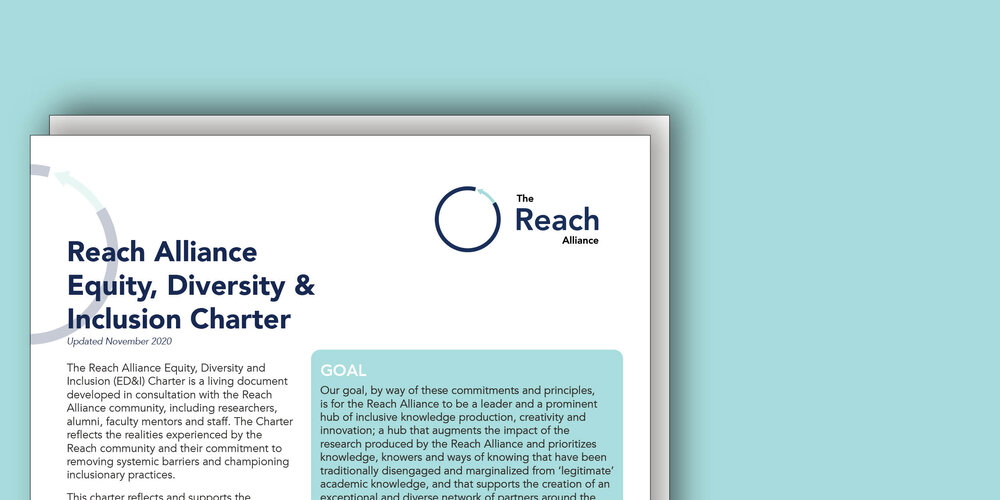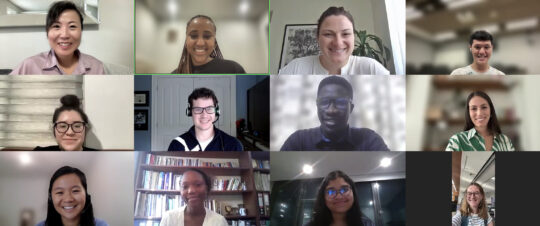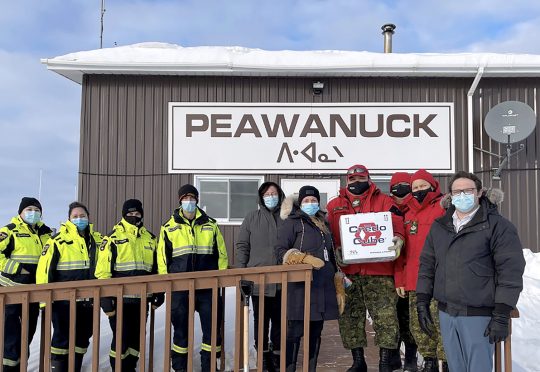This week, the Reach Alliance is proud to announce its new Equity, Diversity and Inclusion (ED&I) charter. The living document, developed in consultation with the Reach Alliance community, reflects the realities experienced by the Reach community and their commitment to removing systemic barriers and championing inclusionary practices.
While equity, diversity and inclusion have been central to the Reach program since its inception, the events of 2020, including the COVID-19 pandemic and the growing momentum of the Black Lives Matter movement spurred the creation of a formal ED&I charter.
“The Reach Alliance has both an opportunity and a responsibility to lead by example, and to support partners in our network to practice a shared commitment to equity, diversity and inclusion,” said Marin MacLeod, the Reach Alliance’s executive director and program alum. “Given our focus on generating actionable research insights and cultivating a talented and diverse pipeline of resilient leaders around the world, we knew the time to act was now.”
The charter was developed through a five-month consultative process, facilitated by Jodie Glean, director of U of T’s Anti-Racism and Cultural Diversity Office (ARCDO). The intensely collaborative process was open to all members of the Reach community, including current researchers, alumni, faculty mentors and staff.
“As a Black person, engaging in research has always been challenging because I understand that it is in many ways rooted in systems, which intentionally exclude racialized people and other equity-seeking groups or treat us as subjects,” said Sydney Piggott, a program alum. “Having the opportunity to co-create this ED&I charter and play a small role in reframing how we approach this work is really important to me and I’m glad to be a part of it.”
“Given our commitment at Reach to reaching those who are the most marginalized, it is imperative that equity, diversity and inclusion be an integral part of who we are, what we do, and how we do it,” said Joe Wong, Reach founder, Interim U of T Vice President, International and Roz and Ralph Halbert Professor of Innovation. “This important charter – the basis for action – is not a “nice to have,” but rather a set of principles and actions that will be woven through our entire organization.”
In addition to a clear goal and concise purpose, the charter includes six actionable commitments related to: leadership, environment, access, ethics, partnerships and acknowledging privilege. Further, there are six principles that form the backbone of the charter: diversity, belonging, equity deserving, solidarity, accountability and excellence.
“Having a charter that guides the work we do, that operates as a critical framework to inform not only what we research, but how, why, and where we research is essential if we are to truly imagine and invite a new world rooted in justice and liberation,” said Kanishka Sikri, active Reach researcher. “Without a critical lens, we may inadvertently reproduce problematic power narratives in our research approach or as we think about our research questions.”
“Our goal, by way of these commitments and principles, is to set the Reach Alliance apart as a leader and as a prominent hub of inclusive knowledge production, creativity and innovation,” continued MacLeod. “Our ED&I charter will support Reach to challenge the status quo and to listen, think and act intentionally when it comes to supporting the creation of an exceptional and diverse network of partners around the world.”
The Reach Alliance is a research network that investigates how to get important stuff to everyone, everywhere – to reach the hardest to reach – in pursuit of achieving the UN Sustainable Development Goals. The student-led, faculty-driven initiative was founded by Joseph Wong, Interim Vice President, International and Roz and Ralph Halbert Professor of Innovation, and is based at the University of Toronto’s Munk School of Global Affairs & Public Policy. The Reach Alliance is supported by the Mastercard Center for Inclusive Growth.




